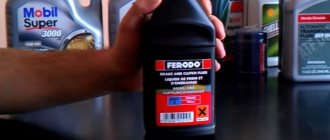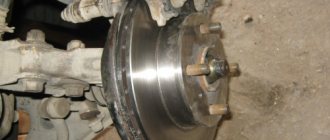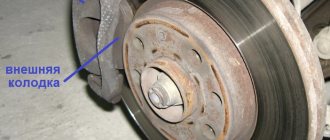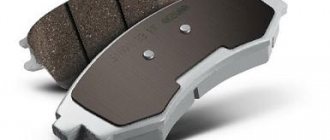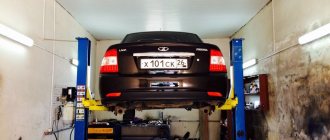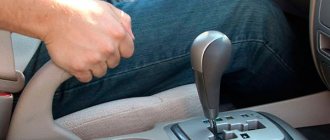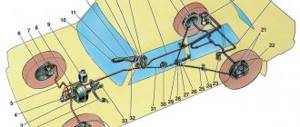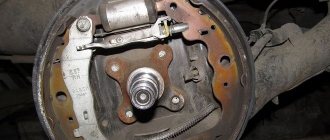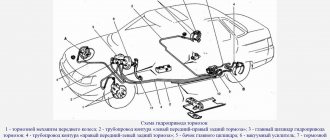And most importantly, if the front wheels of the Grant get hot, do not ignore the problem. Not only the durability of the car, but also your safety on the road depends on this.
Author of the article: Yaroslav Alchevsky 08/22/2020 0 0
Overheating of wheels on Lada Granta is a common phenomenon. Sometimes the disks heat up to frighteningly high temperatures and even crack due to temperature changes if water gets on the hot disk, for example from a puddle. Most often, the front wheels of the Grant get hot, although this problem often occurs with the rear pair. In any case, overheating of the wheels indicates a technical problem and the need to repair the car.
Should the front brake discs be heated?
Overheating of brake discs is a pressing problem during the operation of the braking system, on which your life and health directly depend. After all, a modern car, even a serial one, is a fairly powerful device that develops considerable speed. Accordingly, its timely stopping by braking helps to avoid many dangerous situations on the road.
For the manufacture of brake discs for mass-produced cars, steel and alloy cast iron are used. We exclude consideration of ceramic brake discs; this product is more likely for cars with specific tasks.
Car front disc brakes
However, it is worth mentioning that ceramic brakes are still the height of technology. Ceramic brake discs heat up to a temperature of 1000C, they are not subject to deformation. Carbon brake discs are located approximately in the same niche.
Serial brake discs have an average operating temperature of about 200-300 degrees. The main requirements for disks are:
- strength,
- high friction coefficient,
- high thermal conductivity of the material,
- low ability to stick (adhesion),
- high resistance to thermal shock,
- state of stability when heated
As you can see, high demands are placed on the brake disc, and this is not without reason. Overheating of the brake discs makes the effectiveness of the brakes in the pair: disc - brake pad equal to zero. If the front or rear brake disc gets hot, the brake pads simply slide along the working surface of the brake disc without performing their functions - clutch, friction.
The main reason for the front brake discs getting hot is
Of course, the main reason for disk overheating is friction. The brake system instantly heats up and does not have time to cool down, especially in the city when driving during rush hour. In such cases, you should take this problem seriously and try to make as little sudden starts and emergency braking as possible. You need to brake more smoothly, especially in our time when cars have become much more powerful and heavier.
The weight of the car plays a big role when braking. For a car with a large mass, you need to use wheels with a large diameter, especially for crossovers and SUVs. Driving style also plays an important role. The more aggressively you drive the car, the hotter the brakes become, and this is entirely up to the driver. But these are all human factors that can cause temperature instability even in a working system, and there are also mechanical features.
Another reason for heating the brake disc is heavily worn out discs and pads. This can happen when they were supposed to be changed, but they didn’t do it on time. After all, when the thickness of the metal decreases, when overheated, it is easier to warp.
- The owner installed new low-quality pads.
- After replacement, the brake system was filled with low-quality brake fluid.
- The disk itself has become deformed. This happens when water gets on heated metal.
- The disc also gets hotter during aggressive driving. In which the constant change of acceleration and braking does not allow the brake elements to cool down.
- If the car is equipped with rear drum brakes, then the front brake discs heat up mainly when braking.
Reasons for heating
The main problem is friction of elements with heat generation. In addition to the above, several factors can be attributed to the reasons:
- severe wear of the pads and other system elements;
- cheap low-quality analogues instead of original car parts;
- poor quality brake fluid in the system;
- deformation - for example, water got on a disk heated to a high temperature (this is one of the reasons);
- Aggressive driving is a common cause of heating; the brakes do not have time to cool down after previous use;
- A car with rear drum brakes uses front disc brakes more actively, which heat up more.
Front brakes
The main reason for overheating is aggressive driving style. Please note that we are talking about overheating above the normal temperature range.
In addition, the reasons for this phenomenon are:
- wear of elements - discs, pads, calipers;
- mechanical damage - it can burst from moisture on hot metal and become warped;
- low-quality elements or the entire assembly - this happens when using analogues of original parts and spare parts;
- incorrect installation of the linings - when making repairs yourself, you should be very careful, because your safety depends on the performance of the brakes;
- brake discs that have long served their intended service life and continue to be used;
- when using rear drum brakes - in this case, the main load falls on the front disc brakes - they heat up more.
Replacing pads is often the cause of overheating. This occurs due to incorrect configuration of the elements and components that have been replaced. As a rule, these are bushings and cylinders.
Rear brakes
The main reasons for overheating of the rear brakes are similar to the front ones. As a rule, problems arise with calipers and pads, brake cylinders. There may be a mechanical failure or wear of individual elements. In any case, the brakes do not function effectively, and overheating occurs, which can lead to complete failure.
Another reason for overheating of the rear brake discs is the failure of the front brake group. In this case, the entire load of stopping the car falls on the rear brakes. As a result of increased load, they overheat.
After replacing the pads
Sometimes situations arise with discs overheating after replacing worn out pads with new ones. The situation is non-standard - it would seem that the new part should not cause overheating. However, a peculiar odor may appear that indicates problems. To avoid this situation, you need to:
- remove the lubricant used for preservation from the new pad;
- degrease the surface;
- Clean the hub with a metal brush before installing a new disk - you will be able to avoid distortions and get rid of debris;
- remove the old lubricant and apply a new, special one - you should not use ordinary grease, the brakes may jam at the wrong moment;
- We recommend turning the wheel by hand (with the car jacked up) - it should rotate freely without stopping after two revolutions.
The cause of overheating may be problems with electronic assistants, in particular ABS and other systems. Brake fluid can also cause brake overheating. This is due to the fluid losing its characteristics, causing the system pistons to work ineffectively.
After installing new pads, it is recommended to avoid sudden braking for several hundred kilometers. During this period, they rub against the surface of the disc.
The brake disc heats up - how to detect a malfunction
It is not always possible to understand that the discs are overheating greatly, except in cases where smoke comes out when braking. Although their heating of more than 200 degrees should already raise a question in every car owner - why do the brake discs heat up more than they should? Indirect signs will help you understand this:
- After gently pressing the brake pedal, the pads strongly block the brakes and do not move away from the discs, even when braking is completed, although they should do so. The car may skid. This happens when the guides jam. When replacing pads, it is always necessary to lubricate the caliper guides.
- Jerking, knocking, vibration, and light smoke in the wheel area after braking may also indicate problems caused by faulty brake discs.
- Increased fuel consumption is another indicator that the brake system is faulty and blocked.
- After replacing the pads, it was impossible to gain the required speed, and light smoke appeared when driving. This can happen when installing brake pads with a thicker friction layer than necessary.
When such signals appear, you must immediately inspect the condition of the pads and discs and replace defective parts.
How to Avoid Heating
To prevent excessive heating of the brake discs, you should remember a few rules:
- regularly undergo technical inspection or preventive checks of main components and mechanisms, including the brake system;
- try to avoid aggressive driving with sudden acceleration and braking, the car is already subjected to a heavy load;
- after replacing the pads, check the presence of brake fluid and the correct installation of parts;
- you need to monitor the pads and discs and change them in a timely manner;
- use products from trusted brands recommended by the car manufacturer;
- do not reuse worn parts;
- try to prevent water from getting on the hot metal of the brake system - wash the car immediately after a long drive.
It is easy to follow the above rules and recommendations - it is more difficult to replace or repair a broken brake system as a result of overheating of the disc. Moreover, operating a car with faulty brakes can lead to consequences, including a fatal accident. Take care of your car, take care of yourself and your family.
Overheating of the front brake discs - consequences
Constantly intensely heating brake discs and pads lead to the fact that the material from which they are created undergoes a metamorphosis of its properties. As a result, a film appears between the pads and brake discs. This film significantly reduces the friction force that occurs between the pads and discs. As a result, the efficiency of the brake system is significantly reduced. And even if an experienced driver somehow miraculously adapts to such greatly weakened braking, it will simply not be possible to eliminate the boiling of the brake fluid. There is a very high probability of failure of the entire brake system.
Extreme overheating of brake calipers and pads often leads to their failure. If heating of the brake discs continues even after the brake pads have been replaced, then the reason may be corrosion that forms around the gas turbine rubber, which leads to jamming.
Possible consequences
The main consequences of overheating are poor performance of the braking system. The pad will slide over the hot disc without proper grip, the car will not stop at the right time and an accident or other unforeseen situation may occur. After several acceleration-braking cycles, when the brakes are heated to 400-450 degrees, they may disappear completely until they cool completely. Overheating of the discs will lead to boiling of the brake fluid and, as a result, complete failure of the system.
Front brake discs get hot - how to fix the problem
Some of the listed mechanical breakdowns are resolved quickly and without serious financial costs. If the disk is deformed, then the part is ground down to the correct shape. But this is only possible if the thickness of the spare part allows it.
If low-quality brake fluid is used, then it is enough to replace it with a suitable one. If the pads are of poor quality or they are worn out, then the installation of new auto parts will be required.
How to avoid overheating of front brake discs
There are many reasons for heating the brake system, and therefore ways to avoid the problem may be different. You need to watch your driving style . You should not accelerate too much when driving in the city, as sharp braking will be necessary and the discs will regularly overheat.
Do not forget that the vehicle needs timely diagnostics and replacement of worn parts. This will save money, since repairing a breakdown will cost much more, and will make driving a car safe for the life and health of drivers and passengers.
There are many practical tips on how to keep brake discs in good condition for a long time. One of the rules that experienced motorists follow concerns washing the vehicle. So, it is not recommended to wash the car immediately after stopping in the summer. At high temperatures, the discs become very hot after driving. If you wash the vehicle right away, the part will become deformed, so you need to wait for it to cool down and only then start washing.
You can characterize the condition of the disk by color. Therefore, you need to regularly conduct independent visual diagnostics. So, if the disk is yellow, then it regularly heats up to a normal temperature of 150-280°C. If the disc turns blue, then the temperature of use will be 300-400°C, and if it turns black – 450-500°C.
Perforated wheels are popular today. They are easier to clean and cool. But even such discs sometimes fail, and therefore the parts need to be regularly inspected and the car taken to a service station for diagnostics.
